
The Croquet England Medal for Outstanding Service (Formerly the Council Medal)
The Council Medal was instituted in March 1998 in recognition of outstanding services to the Croquet Association. The conditions for the award were revised in 2010 and 2017. From 2024 onwards it was renamed the Croquet England Medal for Outstanding Services for outstanding service to the work of Croquet England and/or the development of Croquet within its domain
Beatrice McGlen (2024)
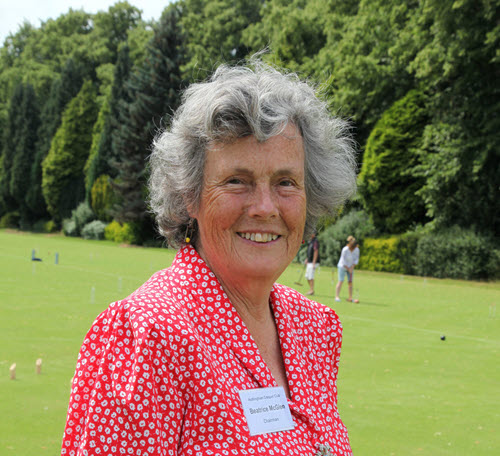 Beatrice McGlen
Beatrice McGlen
Beatrice McGlen began her croquet playing career in the 1980s, at the Coal Technical and Scientific Research Establishment at Bretby in the East Midlands Federation. She joined the Nottingham Croquet Club in 1990 and became its Chairman in 2017. Under her leadership, the club completed an ambitious project to re-lay three former bowls greens as croquet lawns and renovate its pavilions, financed at least in part by the money she raised through numerous grant applications and crowdfunding. She also did much to promote community engagement, such as her "Hoops for Health" programme, resulting in the club being presented with the Sport and Recreation Alliance's national club award for inclusivity and diversity. Women's croquet has been another of her passions, representing England abroad in several events in recent years and encouraging her peers to do so.
She volunteered for election to the Council of the Croquet Association in 2016, serving on several committees before becoming Chairman of its Executive Board in 2020. She then oversaw its transformation into the Executive of Croquet England, acquiring the title of Chief Executive Officer. She continues in that role by driving forward change and modernisation within the organisation both professionally and confidently.
Ian Burridge (2024)
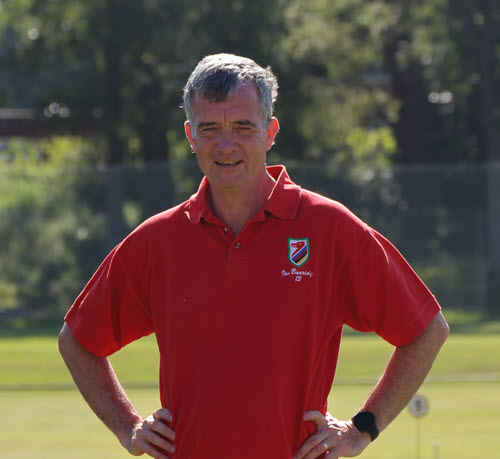 Ian Burridge
Ian Burridge
Ian Burridge took up the sport in 1988, rapidly rising to become a world-class player in Association and later Golf Croquet. Born in Aberdare, he has represented Wales in team and individual events since 1990, and Great Britain in the 1996 MacRobertson Shield and six Solomon Trophies, captaining the team in 2009. His international focus culminated in him becoming President of the World Croquet Federation from 2019 to 2023, having previously served as its Treasurer from 2010 to 2013.
An expert tactician, he has long been willing to share his insight through coaching and was named Coach of the Year for 2015. He created the International Performance Director role to establish a sustainable pathway for talented players to reach international standard, two members of his first AC Development Squad went on to be members of the successful 2022 England MacRobertson Shield team. In addition to creating the course material for the AC Development Squad, Ian also prepared lesson plans for AC coaching pods around the country. In 2023 he published a book "Golf Croquet for Tournament Players".
As a member of the Croquet Association Council in the mid-1990s, he was Chairman of the Selection Committee and an active member of the Tournament Committee, notably conceptualising and managing the CA Centenary Tournament in 1997, the largest post-war croquet event. In 2009 he created the Burridge Swiss concept which has been used ever since for the qualification stage of the AC Open Championship. He returned to Council in 2020 to serve as Treasurer of both the Croquet Association and Croquet England, working with solicitors as the transition to become a Charitable Incorporated Organisation was explored and then realised. He was a member of the Covid Taskforce and identified the need for the Membership Secretariat, which he Chaired.
Samir Patel (2024)
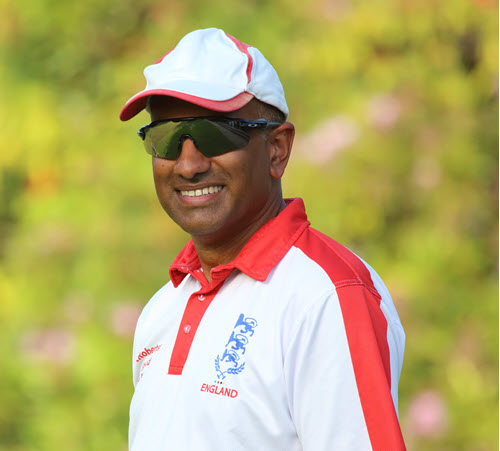 Samir Patel
Samir Patel
Samir Patel learned croquet at Oxford University and brought home the MacRobertson Shield in 2022, captaining the England team for the third time. He is the current holder of the President's Cup.
In addition to an illustrious playing career, he has contributed greatly to the administration of the sport. For many years he has maintained the Tournament Regulations with the Tournament Committees, supported and developed the website, and has been a member of the IT and International Committees.
He represented the South-East Federation on the Croquet Association's Council and became its Chairman in 2021, driving its transition into the Board of Trustees of Croquet England with meetings characterised by good preparation and wise counsel.
On a yet broader canvas, he has served as a member of the World Croquet Federation's Management Committee and this year is his 10th serving on it.
Jonathan Isaacs (2021)
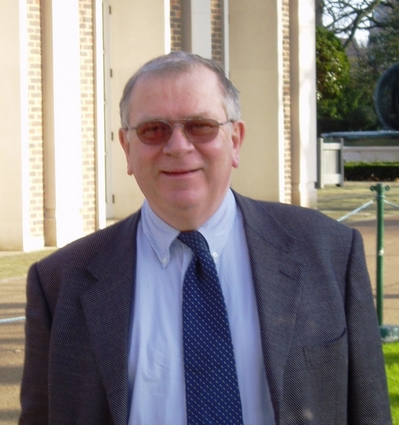 Jonathan Isaacs
Jonathan Isaacs
More than 20 years ago, in 2000, The Croquet Association lacked marketing expertise and quite by chance discovered a member, Jonathan Isaacs, who had just the skills that were needed. He was co-opted on to the Marketing committee and at his first meeting was introduced by the chairman who, recognising we had a marketing professional on board, announced Jonathan was taking over the chair with immediate effect. It was soon evident that the new chairman had plenty of ideas and also the determination to see them put into practice.
Jonathan was elected to Council in 2002, chaired the Management committee and was Vice-Chairman of Council from 2004 to 2006, when he was elected Chairman. He retired from Council in 2009 but was elected a Vice-President, and so returned to it, two years later. His time on Council gave him the opportunity to see the downside of a large group (30+) controlling the governance of the sport. He saw the need to have a smaller, more active and progressive Council that could bring about positive changes for the good and he grasped at the opportunity to work with other like-minded members to bring in radical reforms. He became a man with a mission.
Jonathan's interest in coaching AC and GC led him to create the very concept of a Croquet Academy and to get it off the ground at Southwick. It served as the model for others to be established, from which many members have benefitted. He chaired the organising committee for the hugely successful 2019 GC World Championships that had considerable sponsorship at the Sussex County club.
Jonathan has a relaxed style when communicating with fellow members and his interpersonal skills over the last two years have been a tremendous asset when chairing Council that has implemented the long discussed governance changes. He has made a truly outstanding contribution to CA affairs and it is timely, as he stands down from Council in 2021, that he should be awarded a Council Medal
Dave Kibble (2019)
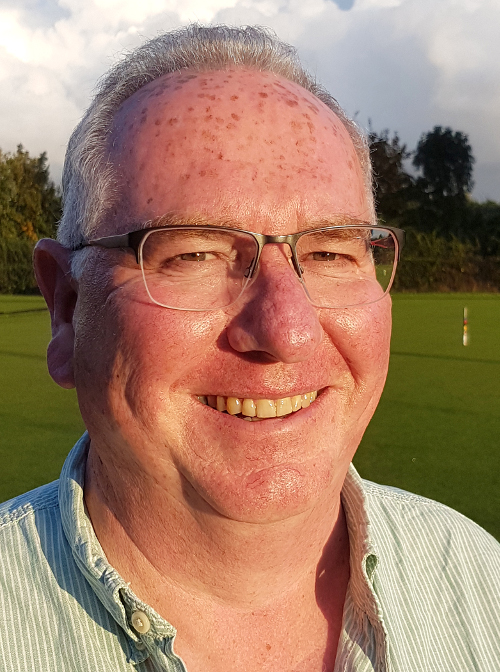 Dave Kibble
Dave Kibble
The World Wide Web is 30 years old this year, and Dave Kibble has supported and developed the Croquet Association website for more than half that time. The site was established by Bill Arliss in 1998 as a collection of static pages. In 2001 Dave wrote a visionary paper about what the website might become and set about implementing it. After an initial re- structuring and re-design of the public content, his focus turned to developing personalised applications.
Login to the site was offered in 2007 and with it the ability for committee members to upload meeting papers: Dave has always been keen that Council and Committee papers should be available to its members. Online tournament entry and payment came in 2010, initially for fixtures organised by the CA, but now used for most club tournaments. Members have him to thank that they no longer need to write cheques and post their entries.
The vision was finally realised in 2016, with the launch of what is effectively a content management system, which provides the ability for committee members to edit pages relating to their own activities. Whilst still supporting the site and its applications, Dave then turned his skills to developing a new membership database, to allow the expanded Croquet Association membership the ability to maintain their own contact details.
Despite the many thousands of hours spent on website development, Dave was also an active member of Council between 2002 and his retirement last year, serving on the Publishing, ICT, Coaching, Marketing and AC Selection committees. As many Chairmen could testify, he could always be relied upon to analyse the details of any proposal and advocate the high standards to which he thought the Association should aspire. He has also been generous with the time he has given to coaching in the South-West.
All that aside, the Council Medal is a richly deserved tribute to his exceptional contribution in developing the infrastructure to administer the sport in the electronic age.
Michael Hague (2018)
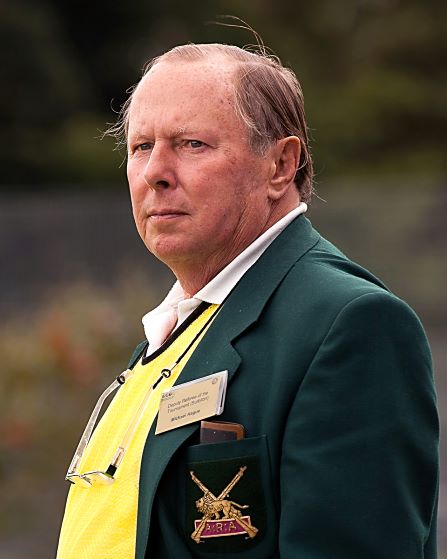 Michael Hague
Michael Hague
Since 2000 Michael Hague has been responsible for many significant advances in the coaching and development of croquet. Michael started playing in 1961. Building on his experience of coaching in many sports during his Army service, he soon qualified as a Grade 1 Coach and at the same time took over as the South East Federation Schools and Coaching Officer.
In April 2001 Michael organised the first national Coach Qualification Course at Surbiton. He devised a two day course to train coaches and wrote the course manual. He then was the lead coach on many courses around the country, notably at Edgbaston and Southport. The format he developed became the model for all national coach training courses.
Michael was a leading instigator of the first AC Coaching Manual, insisting that the format of coaching novices should be arranged in short, easily assimilated sessions which together form the six basic lesson structure still used as the framework for delivering elementary coaching today.
Michael is both a GC Examining Coach and Championship Referee. He was Coach of the Year in 2002 and officiated at the 2004 World Golf Croquet Championships. His knowledge has been captured in his many articles published in the Gazette in 2003 & 2004, culminating in his book Golf Croquet Tactics first published in 2005. It is now in its second revised edition and is used as a text book by GC players today.
Michael's development work within the South East Federation has seen a large number of new clubs formed and blossom over many years. During his tenure of office, Michael has been instrumental in helping to devise progressive policies to assist start-up clubs and aid sustainable recruitment. His forensic and insightful analysis of Grant applications have been a significant part of the effectiveness of the CA grant awarding process and his recent resignation after more than 11 years serving on the Development Committee will be a sad loss. Michael has left a splendid legacy.
Jeff Dawson (2018)
 Jeff Dawson
Jeff Dawson
Jeff Dawson has contributed hugely to the administration of the sport of croquet over many years.
He has been a member of Council since 2003, chaired it from 2012-14, and has chaired the Management, Marketing and AC Laws Committees. This year Jeff has served on our Publishing, ICT, Laws and International committees. He ran the CA Shop for a while from his garage before it moved, along with the office, to Cheltenham.
For many years Jeff has been an Examining Referee, running courses at various clubs in the South East Federation.
However, Jeff's outstanding contribution has been in the field of membership administration, both its policy and implementation. He inspired, and guided through Council and a Special General Meeting, the change to enlarge The Croquet Association's national membership to include all members of its Affiliate Clubs. Having nursed the membership database used in the office for many years, he has been actively involved in the project to replace it, and in the process of uploading and importing details of the new members.
It is therefore timely that he should be awarded the Council Medal for his outstanding work in so many respects.
Martin French (2017)
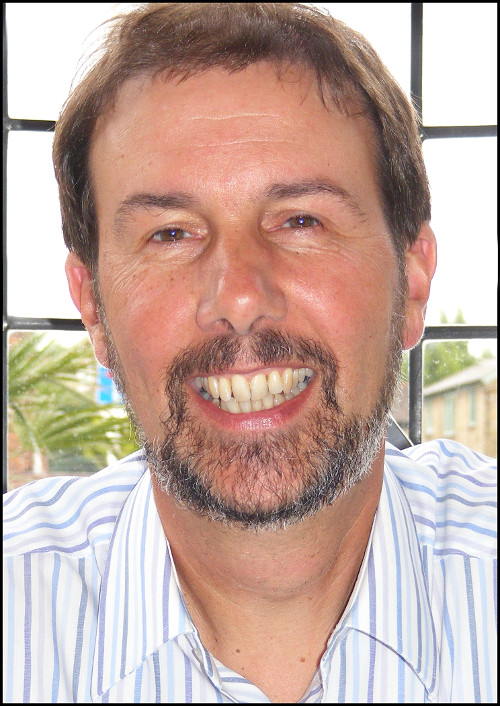 Martin French
Martin French
Martin French has been a mainstay of the Ipswich Club since 1980 and for many years has been its Secretary. He has organised, set up and run the vast majority of club competitions and introduced a very successful winter programme. He also facilitated the twinning of the club with one in Portugal. When, in 2011, it was necessary to move the club from the Arboretum, Martin researched possible sites and then was instrumental in negotiating terms with a local golf club. He researched pavilions and assembled and led a team of members to construct one at the new lawns. Four years later, he did it all again when the club had to relocate within the site.
In the 1980s, he introduced croquet to Farlingaye High School, entering the young players for the National Schools Championship and Essex/Suffolk league. In 2014 he supported and encouraged a young teacher over here from New Zealand to re-introduce croquet to a new group of youngsters, who won the National School Championship and Junior singles championship the next year. He has also run many courses within the club.
On a wider front, Martin served on Council for two years in the late 1980s and more recently since 2010, during which time he has chaired both the AC and GC Selection Committees, the Equipment and GC Rules Committees. He worked with the Handicap Committee by running a trial at Ipswich when the automatic handicap system was introduced for AC and, more recently, trialling the extended range for GC handicaps.
Internationally, he has worked hard for the World Croquet Federation, first as Secretary-General and currently as Treasurer. He has refereed both AC and GC World Championships and is no mean player himself, having played in all the Eights bar one, in both codes.
Martin has an amazing ability to motivate and enthuse people. He uses his expertise with such good humour that it is never threatening and enables others to become involved in managing the club events, competitions and corporate events. He is an excellent teacher and a trusted, efficient and effective communicator, a worthy recipient of the Council Medal.
Robert Fulford (2016)
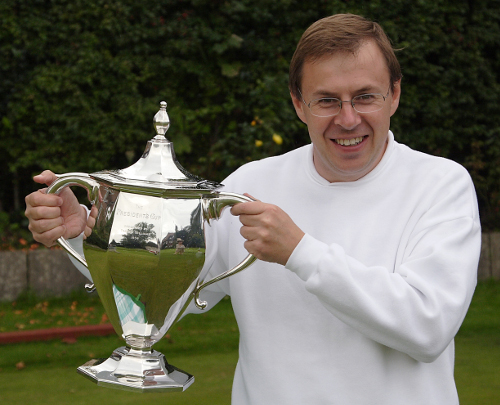 Robert Fulford
Robert Fulford
Robert Fulford was awarded a Council Medal because he has enhanced his country's reputation throughout the croquet world, not only as an outstandingly successful player. Robert has also made an immense contribution to the sport, recognised throughout the world, as a tactical innovator.
He started playing at the Colchester club aged 15 in 1985 and developed fast: in 1989 he won the President's Cup for the first of 11 times. By the 1990s Robert's play had advanced into a class of its own and he was coaching semi-professionally in Australia and in USA.
By the end of 2015 Robert's Association Croquet achievements have made him one of the most successful players in the history of the sport. It might be said that he is the first person to conquer the game: he appears to be able to complete almost any manoeuvre he decides to try. He has won the World Championships a record five times and has been a member of a winning British MacRobertson Shield team on an unprecedented seven occasions, twice as Captain. In 2015 Robert won the British Open Championship for the 11th time, one more than John Solomon. Partnering Chris Clarke and James Death he has won the British Open Doubles Championship 12 times.
Robert has always been willing to share his tactical ideas with anyone who wants to discuss them and arguably he has been responsible for the development of this open discussion culture throughout the top level of British croquet. He expanded 'Peel On Opponent' tactics with a variety of new lift leaves and in 1993 pioneered the sextuple peel into a routine winning tactic - though many of his peers couldn't match his ball control well enough to adopt his tactics. The introduction of super-advanced rules has given Robert a new environment to experiment tactically and, unsurprisingly, he is regarded as a leading thinker in this area.
Since Robert married Susan and she began to play doubles he has gone beyond mere sextuple peels to making 10 or 11 peels in a turn. He has turned peeling from being a formula and pattern to being more a 'state of mind'.
Championship croquet in 2016 is a different sport to what was being played in 1990 and this is largely due to Robert Fulford. He has been a great ambassador for croquet and his services to our sport have indeed been outstanding.
Ian Vincent (2015)
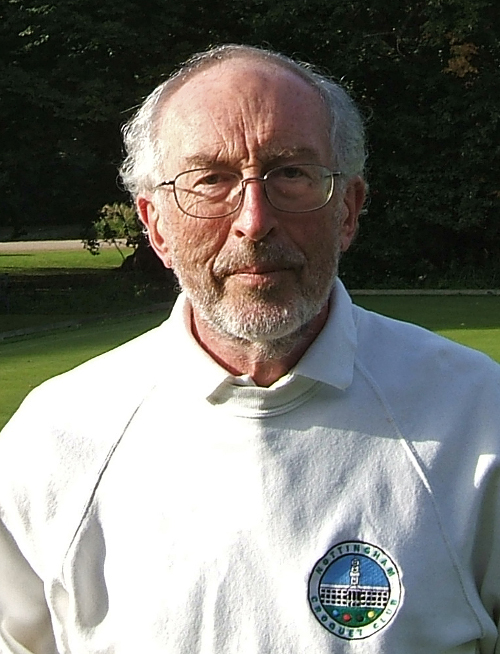 Ian Vincent
Ian Vincent
Ian Vincent was awarded a Council Medal because of his outstanding services to croquet at club, national and international level for over 40 years.
Ian has been Hon. Secretary of the Nottingham club since 1978, guiding club Chairmen and Presidents through countless agendas and developing very useful contacts with local authority officials. He has managed the East Midlands Championship since its inception and the club's August Week from 1982 to 2002. But Ian has always had his feet on the ground at Nottingham, bringing on beginners and doing his stint in the kitchen when tournament catering is needed. His contribution to the life and growth of the club has been truly remarkable.
Ian has been a long-standing member of The Croquet Association Council and was its Chairman from 2003-2006. Over many years Ian has been an Examining Referee and chaired the International and the CA AC Laws committees, steering them along true and rational paths. He became the Secretary of the Association in 2008 and in that capacity continues to make many contributions above and beyond the call of duty. He has found time to play to a standard where he is a regular among the invitation Eights and he has played in 36 consecutive Open Championships.
Ian is the father of the Nottingham Board, a mailing list by which croquet players exchange knowledge and abuse, sometimes to the wider benefit of the game. He has maintained it for twenty years and has also contributed greatly to the smooth running and effectiveness of Croquet England's Information and Communications Technology.
Ian Vincent's first degree was taken at Cambridge in Natural Sciences, but he was based at Sussex for his doctorate in theoretical chemistry. 'The Good Doctor' moved on to provide a working computer system for the students at Nottingham. He is a music enthusiast and the Opens at Cheltenham are a particular delight for him when that tournament coincides with the music festival. He is a regular in the tower at Beeston church ringing bells, and in the adjacent pub afterwards. It is speculated that Ian has done more peals of triples than triple peels.
Ian is a keen hill walker. On a recent trip to New Zealand he showed a croquet player's characteristic disregard for written notices and decided that the instruction "Do not walk past this point" did not apply to him. He was rescued the following day by a Kiwi State helicopter!
Over and above all the specific details of his roles and activities, Ian consistently demonstrates an understanding of people and their views, nurturing their contributions without any upset. Beyond all doubt he is a worthy recipient of a Council Medal.
Bill Arliss (2013)
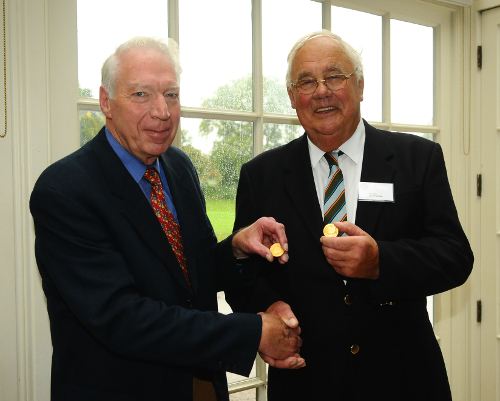 Roger Bray and Bill Arliss (L to R)
Roger Bray and Bill Arliss (L to R)
Bill Arliss has been the main driving force behind the development of Golf Croquet in the CA's domain, from being a relaxing diversion at the end of a day's play to a competitive sport in its own right. Whilst always eager for it to be given parity with Association Croquet, which he also played for Sussex, he fought to ensure that it was played in the same spirit and to avoid the formation of a rival governing body. Bill was elected a member of Council in 1995 and became Chairman in 1997, following the sudden death of his predecessor, Stephen Badger. He oversaw the introduction of the Management Committee and the devolvement of powers to standing committees. He then chaired the Golf Croquet Committee and its successor GC Tournaments and Laws Committees. An engineer by training, his high speed video of several strokes did much to improve understanding of the dynamics of mallets, hoops and balls. Other innovations were the website and GC ranking system, both of which he ran for a number of years. Internationally, he has represented The Croquet Association on the WCF's Golf Croquet Rules Committee, organised the 2004 GC World Championship and played in three of them. Bill has published a book covering the more advanced tactics in Golf Croquet and has been on the committee of the South East & London Federation since 1994 and its Chairman since 2002.
Bill has always been a forceful debater on croquet matters and he has ruffled some feathers along the way. However croquet players generally, not just those of the form he came to champion, have much to thank Bill for. His contribution to our sport has indeed been outstanding.
Roger Bray (2013)
Roger Bray played for the winning Great Britain team in the 1969 MacRobertson Shield tour to Australia, and was reportedly a master of the three-ball break. However, it was after he retired from top-level play that Roger made his most substantial contribution to the sport, as an administrator.
A mathematician, he worked at Essex University and the Royal Institution, and was Chairman of the Colchester Club from 1973 to 1982. Elected to Council in 1968, he became its Chairman from 1978-80 and retired from it in 1984. However, he returned to become Hon. Treasurer in 1992, when Alan Oldham retired after 25 years in the post, and has himself served over 20 years in that role.
During that time he has guided the Association to a position of relative financial security, weathering the storm that resulted from the withdrawal of Sports Council support. It is a measure of his success that Croquet England is now able to give development grants to clubs amounting to some £30,000 each year, so both club and individual Associates have good reason to thank Roger for his careful husbandry of our resources. Council's award of this Medal recognises his immense service to croquet over many years.
Chris Williams (2012)
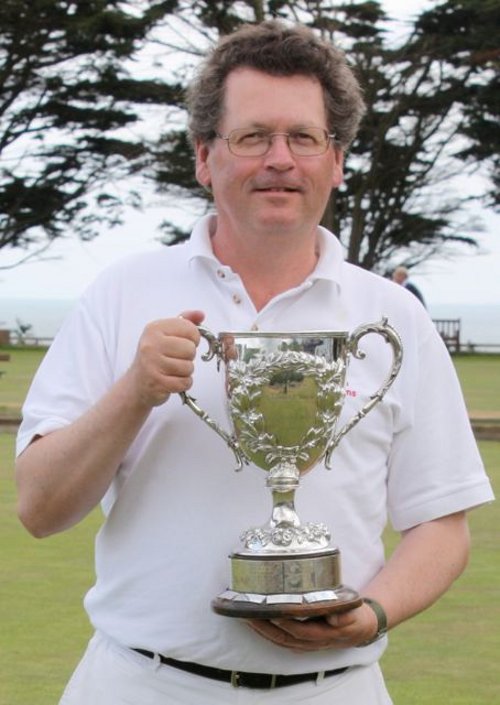 Chris Williams
Chris Williams
Chris Williams started working on the AC CGS (Ranking System) in 1992 when he worked with Stephen Mulliner entering data manually. He quickly took over the full operation of the system and has continuously improved it as well as expanding the range of tournaments recorded, including the whole of the croquet world under the auspices of the WCF. He also worked on making the system user-friendly for the players in the database as well as third party users, such as Selection Committees. Last year he formulated a similar system for the GC world. He also runs the Croquet Records website and has been the Official CA Archivist since 2006. The award of the Council Medal thanks Chris for his past 20 year period of service to the croquet world.
George Noble (2011)
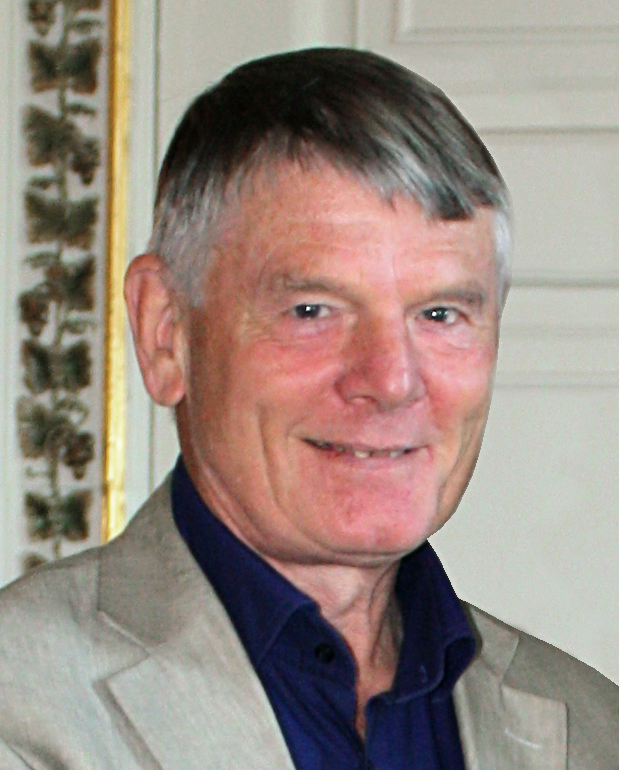 George Noble
George Noble
George Noble, Chairman of the Surbiton Croquet Club for many years, has instilled a remarkable ethos of volunteering and a relaxed atmosphere that has attracted a substantial membership, including many of the best players of both Association and Golf Croquet. Surbiton is now recognised as one of the leading clubs in the Croquet Association and its strength, under George's leadership, was evident in 2010 when it hosted the final round of the MacRobertson Shield to universal praise from the players, and this year when it hosted, not only the AC Open Championship, but a substantial part of the GC World Championship a fortnight later.
George Noble started playing croquet in the grounds of a 'stately home' near Aberystwyth where he was employed as a farm adviser by the then Ministry of Agriculture. Brian Shorney was also a graduate of that croquet academy. In 1974 George secured a move to Loughborough to be near a croquet club and joined a group of young players at the Nottingham club, who were discovering the A class game. Then to London where he joined the administrative civil service and dealt with such matters as the Spanish fisheries war, where he spent much time before the Beak in the European Court of Justice, the Foot and Mouth crisis and, finally, animal welfare. George is happy to take some of the credit for the ban on dog tail docking.
In London, George joined the Roehampton club. He won the Men's Championship in 1979, played for the first time in the Opens the following year, and was subsequently invited to play in the President's Cup. He was also appointed an Examining Referee.
Feeling the need for a dedicated and more accessible croquet club in SW London he, along with a number of others including Ian Bond, Derek Caporn, Stephen Mulliner, Brian Whitehouse and Lionel Wharrad, persuaded The Croquet Association to take on a lease of a ground with space for seven lawns in Alexandra Park, Tolworth and formed the Surbiton Croquet Club in 1986. At the start there were no facilities, just a disused public convenience that served as an equipment shed ... which led to a somewhat rustic feel to the early tournaments. However, with grants from the Sports Council, The Croquet Association and Fullers Brewery, a wooden clubhouse was erected, complete with a cellar that George has managed to this day. He has also spent many hours in the kitchen, following the standard set by Hazel Kittermaster, with the result that the club's catering is awarded stars throughout the croquet world. His real pride and joy, however, has been the lawns, which he has converted over the years from rough, sloping, former tennis courts to some of the best in the country. Rather than keep his knowledge to himself, he has been very willing to share it through The Croquet Association's Lawn Advisory Group.
Despite being heavily involved at Surbiton, George has also given considerable assistance to the Hunstanton Club. He was its President from 1996 to 2006, during the period of the fire and building of its new pavilion.
George Noble's contribution to these clubs, and through them to so many tournament players, has been immense and fully deserves the award of the Council Medal.
Prof. Bernard Neal (2010)
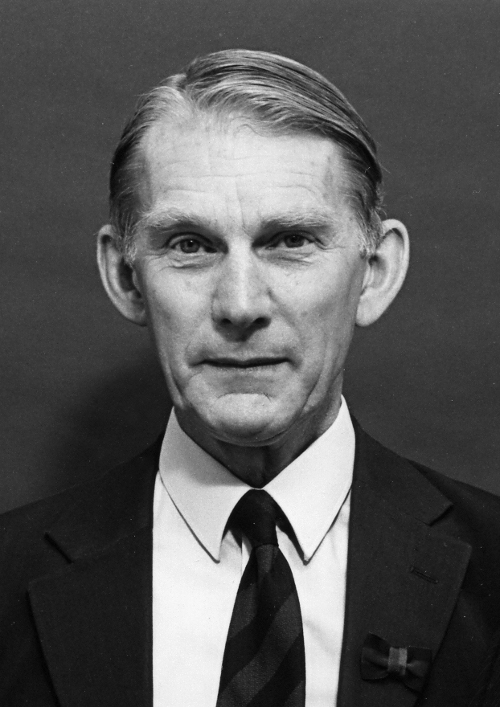 Prof. Bernard Neal
Prof. Bernard Neal
Bernard Neal joined the Association in 1963. He was selected for the President's Cup in 1967 - an event in which he eventually played eleven times. He won the Open Championship twice and the Men's Championship once. He also represented Great Britain in three MacRobertson Shield series, in 1969, 1974 and 1979.
But his prowess on the croquet court is more than matched by his contributions to the game off it. He was elected to Council in 1966 and in the following year was appointed Chairman of the Publicity Committee. He led discussions with the newly-formed Sports Council which resulted in annual grants to Croquet England, eventually spanning twenty-eight years and making a huge contribution to Croquet England's finances. The first grant aid, in 1970, provided financial support for the CA to initiate a development programme and the first development officers to be appointed were Barbara Meachem and Liz Neal. The momentum they generated eventually led to the appointment of a National Development Officer and the establishment of the CA's Coaching and Development Committees.
Bernard's balanced judgement and tact made him an obvious choice to be Manager of the 1969 Test Team. He won universal praise from the Australians and New Zealanders during the tour and, since then, he has been a highly respected unofficial ambassador for the Croquet Association on the world Croquet stage. In September 2010 Bernard was inducted into the World Croquet Federation's Hall of Fame.
Following three years as Publicity Chairman, Bernard was elected Vice-Chairman of Council from 1970 to 1972 and Chairman from 1972 to 1974. He then served on numerous Council committees, many as chairman. When he was Chairman of the Laws Committee he wrote The Basic Laws - just one example of his tireless efforts to improve The Croquet Association's provision for its members. As an internationally respected civil engineer, Bernard was instrumental in making The Croquet Association see the benefits arising from standard specifications for croquet equipment. He led from the front in devising ball-testing equipment and chairing the Equipment Committee.
Bernard has so often acted in an effective way to help the Association. In 2002, when The Croquet Association's headquarters moved to his home club, Cheltenham, where he has been President since 1995, Bernard (with other club members) did their utmost to make the transition as smooth, and the welcome as warm, as possible. In 2004, Bernard was the obvious choice to succeed John Solomon as President of The Croquet Association, a position he decided to relinquish at last year's AGM.
Bernard was a highly competitive county tennis player and is a long-standing member of the All England Lawn Tennis and Croquet Club, serving on its main committee for many years until 1996 when he was elected to a Vice-Presidency. Bernard won more Wimbledon championships than any other person - a good pub quiz question! He was one of a small group of members who effectively resurrected croquet at Wimbledon in the post-war era, and it is largely due to Bernard's influence that it now has a much closer relationship with the Croquet Association. The Croquet Exhibition at Wimbledon during The Croquet Association's centenary year, the gift of the Wimbledon Cup for the World Croquet Championship, and several notable Croquet England functions held at Wimbledon, would never have happened but for his behind-the-scenes work.
Bernard prefers quiet diplomacy and is modest about his achievements. Thus it is impossible to chronicle how generous and supportive he, and Liz, have been to many (especially younger) players. But what has been noticed here gives ample evidence that the CA, and the whole croquet world, owe an enormous debt of gratitude to someone who has worked ceaselessly for Croquet for well over forty years and who, by setting the highest standards in all that he has done, is most certainly a worthy recipient of the Council Medal.
Dr Ian Plummer (2010)
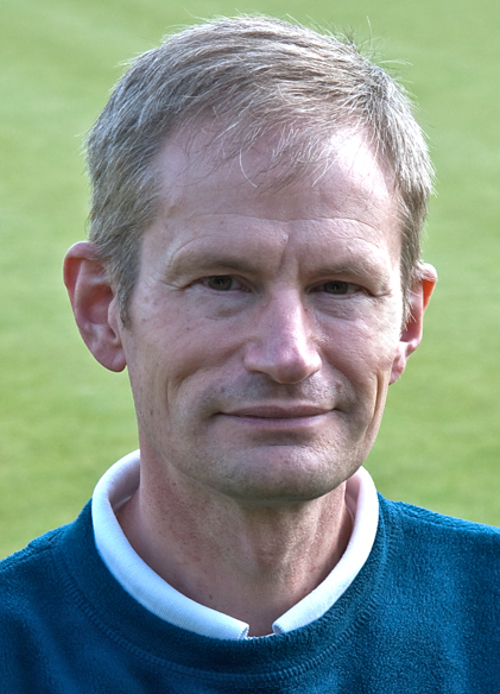 Dr Ian Plummer
Dr Ian Plummer
Ian Plummer has coached students at Oxford University for over 25 years and the total number he has introduced to croquet is certainly well into four figures. A significant number have gone on to play in the higher echelons of the game - including the current highest ranked lady player in the world, the current British Women's Champion, and several players who have represented their countries in international teams. Six of them were contenders for the last World Championships, whilst others are returning to the sport after raising families. His coaching notes have been translated into Japanese, German and Russian. Oxford's dominance in the Varsity Match during his time there shows the benefits of having an experienced player as a permanent presence. Always keen to share his knowledge, he developed the "Oxford Croquet" website about eight years ago, which is recognised, by links from sites around the world, for the authority of its articles, which now number over 500. He has also developed web-based applications, including a club locator covering many countries and a tournament management system for multi-venue events.
He has applied both his theoretical and practical scientific skills for the benefit of croquet, working with other players and the Equipment Committee to investigate a number of technical issues, including high speed ball and mallet interactions via video, electrical contact and carbon paper. His calculations of the time/distance relationship for balls as they slow down have been recognised by naming a measure of lawn speed after him.
Although he has never been part of the management structure of the Croquet Association, preferring the freedom of operating outside, he has nevertheless been active in stimulating its development, particularly in the areas of web and database technology and online publishing. He formatted the first edition of the laws to appear online, encouraged the publication of the Directory and fixtures book, and has piloted online tournament vacancy information for the Surbiton club, where he plays when not at Oxford. His contribution to croquet in several fields makes him a worthy first recipient of the Council Medal under its recently adopted wider criteria.
Derek Trotman (2008)
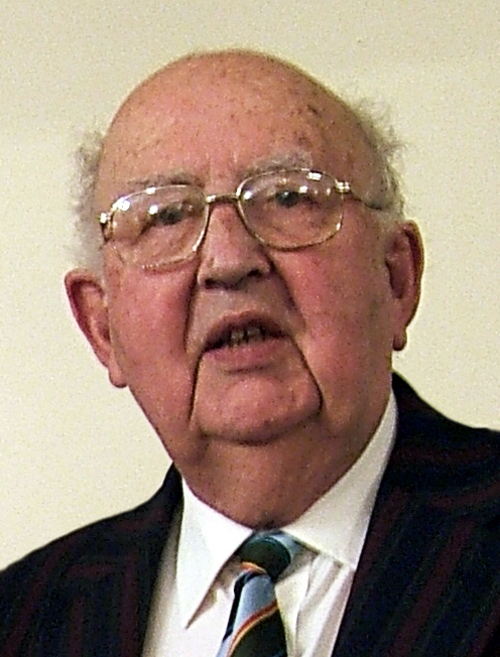 Derek Trotman
Derek Trotman
Derek served on Council from 1992 to 2008 and was the "Father of the House". During that time he made a major contribution by chairing at least three of the Principal Committees: Development, Publishing and Tournament, and always tried to ensure that high standards of administration have been maintained.
In earlier years, he was heavily involved in the administration of hockey, and brought his experience of that to the Council table. In addition to his contribution nationally, he has been heavily involved with Croquet North and the Tyneside Club.
David Magee (2007)
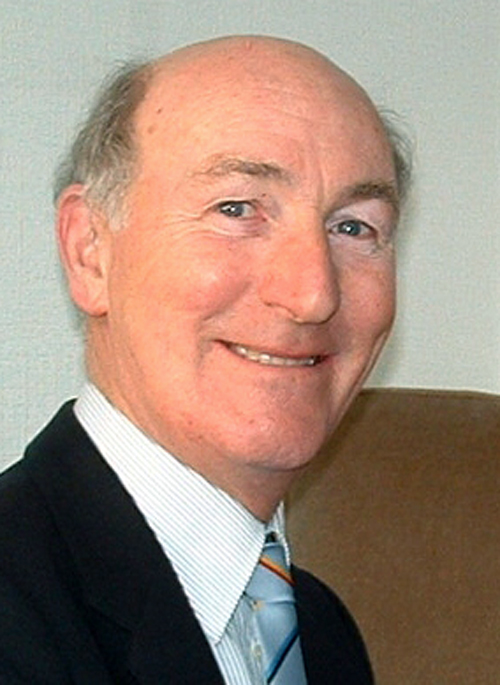 David Magee
David Magee
David Magee has done many things to enhance croquet at both a national and local level but his organisation of the office move to Cheltenham and the World Championship are of particular note.
Alan Oldham (Posthumously, 2006)
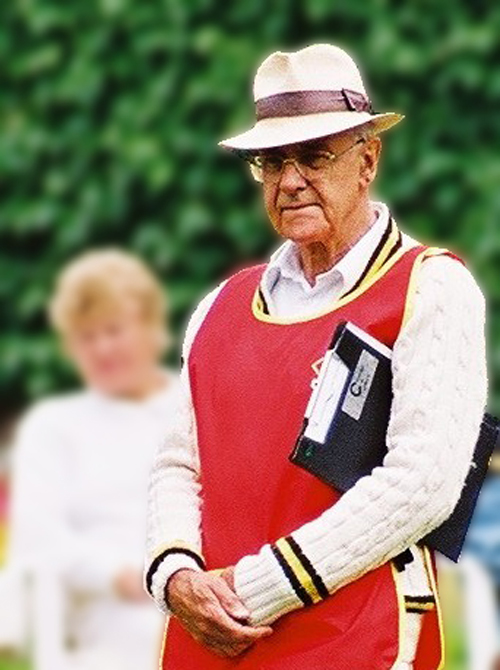 Alan Oldham
Alan Oldham
For long service as Hon. Treasurer, Vice-President, Archivist and conscience of the Croquet Association.
John Solomon (2004)
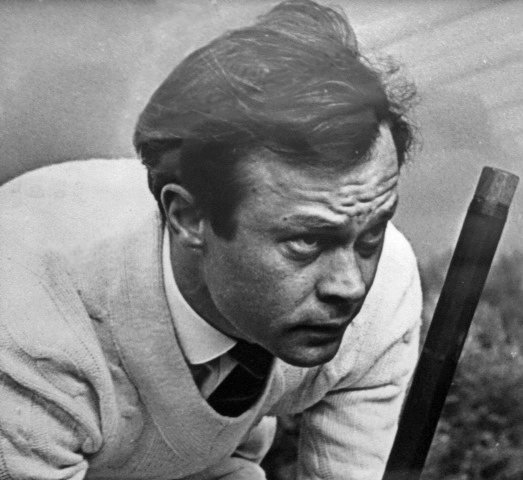 John Solomon
John Solomon
On his retirement as President of The Croquet Association, after a 22-year reign and for his many services to croquet.
Bernard Neal, who succeeded John as President, praised John's achievements both on court and in the development of the game throughout the world, particularly in the USA.
Judy Anderson (2002)
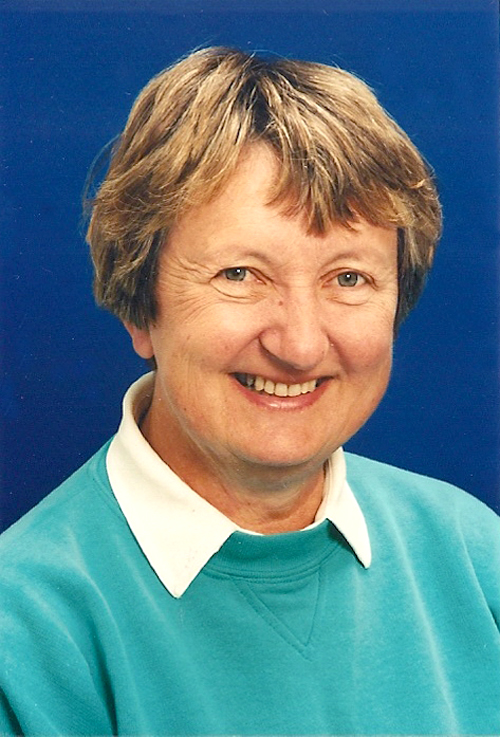 Judy Anderson
Judy Anderson
Judy is only the fourth person to receive this Medal, which demonstrates the scale of her outstanding services to the game, particularly her development work in East Anglia.
CA Vice-President, Lionel Wharrad, says "I do not know of a more deserving recipient. Her contribution to the game over the past 20 years has been immense".
And Quiller Barrett, Chairman of Council, adds "Judy is one of those people who have their feet firmly on the ground and knows just how to give really practical help to clubs and croquet players. I am sure there are hundreds of club members who will want to congratulate Judy and thank her for everything she has done to develop croquet so successfully, particularly in East Anglia".
Bill Lamb (2000)
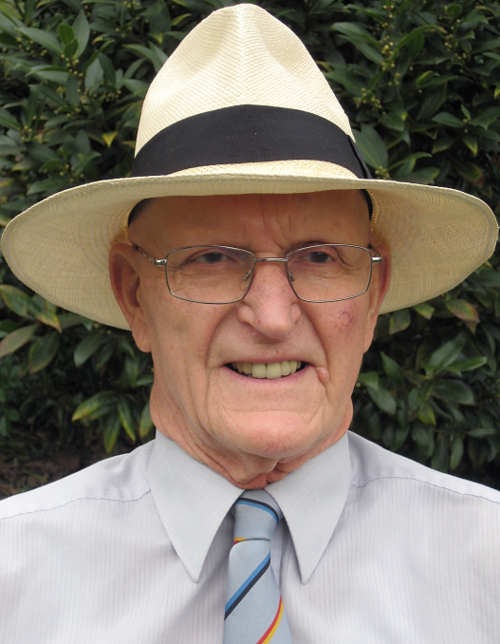 Bill Lamb
Bill Lamb
Long service and devising the Automatic Handicapping System.
Don Gaunt (1998)
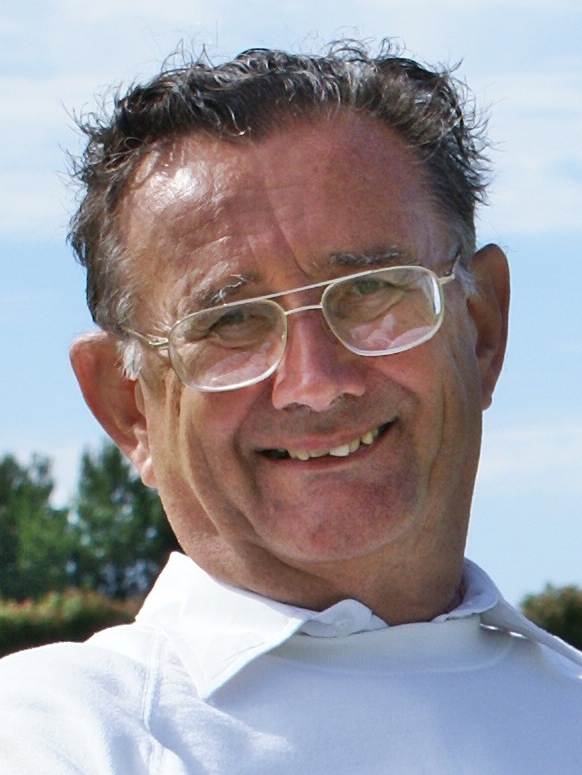 Don Gaunt
Don Gaunt
For ten years producing the Fixtures Book in its present form, which he devised.
Paul Macdonald (1998)
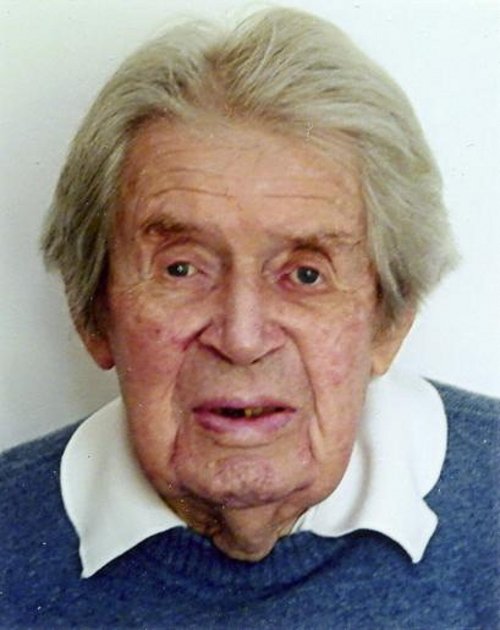 Paul Macdonald
Paul Macdonald
Long service on the tournament scene, particularly the Veterans, Seniors, Peels, and Challenge & Gilbey.
 Contents...
Contents...
 Using this website
Using this website

